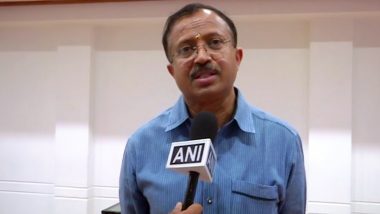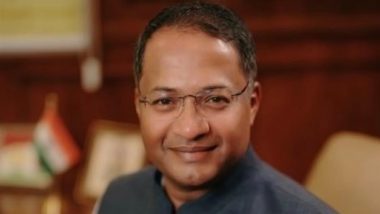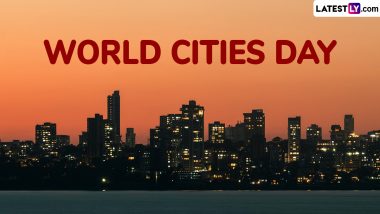New Delhi, September 17: India on Thursday said it has accorded the "highest priority" to getting permanent membership in an expanded UN Security Council that reflects contemporary global realities. Minister of State for External Affairs V Muraleedharan said India is actively engaged in the ongoing inter-governmental negotiations on reform of the powerful body at the UN and has been working alongside other like-minded countries and groupings.
Muraleedharan was replying to a question on whether the government was making serious efforts to acquire a permanent seat for India at the UN Security Council (UNSC). "Government has accorded the highest priority to getting permanent membership for India in an expanded UN Security Council that reflects contemporary global realities," he said. Union Minister V Muraleedharan in Self Quarantine After Coming in Contact with COVID-19 Patient in Trivandrum.
"India in collaboration with other pro-reform countries has been consistently making efforts to build support among the UN member states for expansion of the UNSC, in both permanent and non-permanent categories," the minister said. At present, the UNSC comprises five permanent members and 10 non-permanent member countries which are elected for a two-year term by the General Assembly of the United Nations.
The five permanent members are Russia, the UK, China, France and the United States and these countries can veto any substantive resolution. There has been growing demand to increase the number of permanent members to reflect the contemporary global reality.
India, Brazil, South Africa, Germany and Japan are strong contenders for permanent membership of the UNSC which has the primary responsibility for the maintenance of international peace and security. Muraleedharan said there was a section in the UN that supports expansion only in the non-permanent category and is opposed to an expansion of permanent membership.
"The question of India's permanent membership of the UNSC would be considered only after an agreement on the nature and extent of expansion of the Council is arrived at in accordance with the provisions of the UN Charter which requires approval by two-third of the membership of the UN," he said.
An Inter-Governmental Negotiation (IGN) process of the UN has been working on various aspects of the reform, including categories of membership, issues relating to the veto power and regional representation.
Muraleedharan said India is actively engaged in the ongoing IGN and has been working alongside other reform-oriented countries through its membership of the G-4 bloc as well as with cross regional grouping of developing countries of Asia, Africa and Latin America. The G4 comprises India, Japan, Brazil and Germany. "UNSC reforms are discussed in all pertinent bilateral and multilateral meetings, including at the highest levels," he said.













 Quickly
Quickly





















